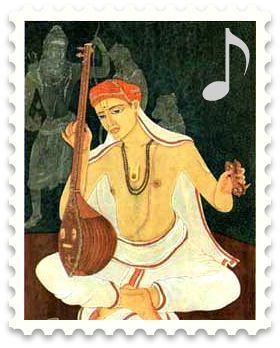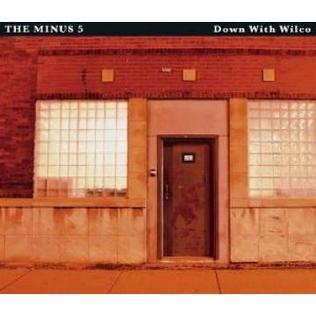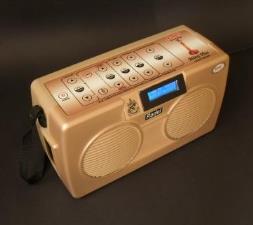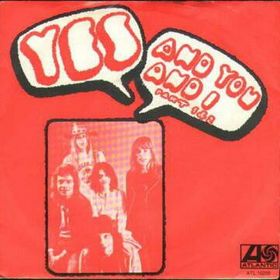In music, an ostinato is a motif or phrase that persistently repeats in the same musical voice, frequently in the same pitch. Well-known ostinato-based pieces include classical compositions such as Ravel's Boléro and the Carol of the Bells, and popular songs such as Donna Summer and Giorgio Moroder's "I Feel Love" (1977), Henry Mancini's theme from Peter Gunn (1959), The Who's "Baba O'Riley" (1971), and The Verve's "Bitter Sweet Symphony" (1997).

Accompaniment is the musical part which provides the rhythmic and/or harmonic support for the melody or main themes of a song or instrumental piece. There are many different styles and types of accompaniment in different genres and styles of music. In homophonic music, the main accompaniment approach used in popular music, a clear vocal melody is supported by subordinate chords. In popular music and traditional music, the accompaniment parts typically provide the "beat" for the music and outline the chord progression of the song or instrumental piece.

Kishori Amonkar was an Indian classical vocalist, belonging to the Jaipur gharana, or a community of musicians sharing a distinctive musical style. She is considered to be one of the foremost classical singers in India.

The tanpura is a long-necked, plucked, four-stringed instrument originating in India, found in various forms in Indian music. Visually, the tanpura resembles a simplified sitar or similar lute-like instrument, and is likewise crafted out of a gourd or pumpkin.
The Alap is the opening section of a typical North Indian classical performance. It is a form of melodic improvisation that introduces and develops a raga. In dhrupad singing the alap is unmetered, improvised and unaccompanied, and started at a slow tempo. For people unfamiliar with the raga form, it introduces the thaat to the listener. It defines the raga, its mood, and the emphasized notes and notes with a secondary role. It's like an invocation.

A rhythm section is a group of musicians within a music ensemble or band that provides the underlying rhythm, harmony and pulse of the accompaniment, providing a rhythmic and harmonic reference and "beat" for the rest of the band. The rhythm section is often contrasted with the roles of other musicians in the band, such as the lead guitarist or lead vocals whose primary job is to carry the melody.
In music, a drone is a harmonic or monophonic effect or accompaniment where a note or chord is continuously sounded throughout most or all of a piece. A drone may also be any part of a musical instrument used to produce this effect; an archaic term for this is burden such as a "drone [pipe] of a bagpipe", the pedal point in an organ, or the lowest course of a lute. Α burden is also part of a song that is repeated at the end of each stanza, such as the chorus or refrain.

Raga rock is rock or pop music with a pronounced Indian influence, either in its construction, its timbre, or its use of Indian musical instruments, such as the sitar and tabla. In addition, rock music from the 1960s and 1970s that incorporates South Asian musical influences and instruments, along with Western ideas of the Indian subcontinent, is often regarded as raga rock.

"Dogs" is a song by English rock band Pink Floyd, released on the album Animals in 1977. This song was one of several to be considered for the band's 2001 compilation album Echoes: The Best of Pink Floyd.

"The Dogs of War" is a song by Pink Floyd from their 1987 album, A Momentary Lapse of Reason. It was released as a promotional single from the album. Live versions have an extended intro, an extended middle solo for the saxophone, a guitar and sax duel and a longer outro as compared to the album version. The track was a minor rock radio hit in the US and reached #16 on MTV's Video Countdown in May 1988.

Down with Wilco is the fifth album by American rock band The Minus 5. Produced by Scott McCaughey and Jeff Tweedy, it is a collaboration between McCaughey and Wilco, recorded at SOMA Studios Chicago in September and December 2001. Released on Yep Roc in 2003, it also features contributions from Peter Buck of R.E.M., Ken Stringfellow of The Posies, Sean O'Hagan of The High Llamas, with Jessy Greene providing strings. The double-vinyl version adds five songs not included on the CD.
Musical improvisation is the creative activity of immediate musical composition, which combines performance with communication of emotions and instrumental technique as well as spontaneous response to other musicians. Sometimes musical ideas in improvisation are spontaneous, but may be based on chord changes in classical music and many other kinds of music. One definition is a "performance given extempore without planning or preparation". Another definition is to "play or sing (music) extemporaneously, by inventing variations on a melody or creating new melodies, rhythms and harmonies". Encyclopædia Britannica defines it as "the extemporaneous composition or free performance of a musical passage, usually in a manner conforming to certain stylistic norms but unfettered by the prescriptive features of a specific musical text." Improvisation is often done within a pre-existing harmonic framework or chord progression. Improvisation is a major part of some types of 20th-century music, such as blues, rock music, jazz, and jazz fusion, in which instrumental performers improvise solos, melody lines and accompaniment parts.

An electronic tanpura is an electronic instrument that replicates the sound of an Indian string instrument known as the tanpura (tambura), used to provide a constant drone to accompany another's vocal or instrumental melody.

Aashish Khan Debsharma is an Indian classical musician, a player of the sarod. He was nominated for a Grammy Award in 2006 for the 'Best Traditional World Music Album' category for his album "Golden Strings of the Sarode". He is also a recipient of the Sangeet Natak Akademi Award. Besides being a performer, composer, and conductor, he is also an adjunct professor of Indian classical music at the California Institute of the Arts, and the University of California at Santa Cruz, in the United States.
"Close to the Edge" is a song by the English progressive rock band Yes, featured on their fifth studio album Close to the Edge (1972). The song is over 18 minutes in length and takes up the entire first side of the album. It consists of four movements.

"And You and I" is the second track from the album Close to the Edge by the English progressive rock band Yes. The song is just over ten minutes in length and consists of four movements. The first and second parts of the song were released as a single edit and reached number 42 on the Billboard Hot 100.

"Watcher of the Skies" is the first track on English progressive rock Genesis' 1972 album Foxtrot. It was also released as the album's only single. The song was re-recorded in 1972 in a radically altered and shortened single version. This version was re-released in 1998 as part of the Genesis Archive 1967–75 box set.

"I've Seen All Good People" is a song by the English progressive rock band Yes, written by frontman Jon Anderson and bassist Chris Squire and recorded on their third studio album, The Yes Album (1971). The almost 7-minute song is in two parts; the first, titled "Your Move", was released as a single in 1971 which peaked at number 40 in the US, which helped the group build momentum. The second part is entitled "All Good People".
Pelt is a drone music group formed in Richmond, Virginia in 1993.

The Living Room Sessions Part 1 is an album by Ravi Shankar released in 2012 through the record label East Meets West. The album earned Shankar the Grammy Award for Best World Music Album.














